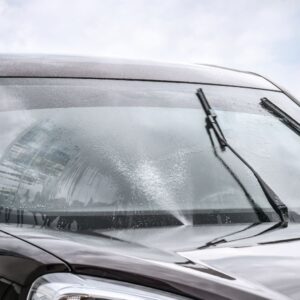The Toyota Prius has been in the market since 2001, and it only gets better every year. The hybrid’s beefed-up performance and sleek styling are only some of its impressive features that a lot of car enthusiasts admire.
Unfortunately, upgrades can come with a couple of issues, and the Prius is no exception. Although it’s seen as a reliable daily driver, some owners are left to deal with problems, including a no-start condition.
Here are 10 possible reasons why your Prius doesn’t start.
Dead Battery
The battery is the heart and soul of a vehicle’s electrical system, especially for hybrids like the Prius.

Hybrid vehicles come with a high-voltage battery pack and a 12-volt battery pack. Either one of them can fail and prevent your Prius from starting.
When the high-voltage battery fails, it’s also likely that the smaller battery pack will be replaced because it’s impossible to condemn a high-voltage battery with a bad 12-volt battery.
In some hybrid vehicles, the 12-volt battery is also capable of starting the engine.
Overcharging is the most common reason why batteries fail prematurely because it causes the active plate material to disintegrate. Excessive vibration or bumping can also produce the same results.
Dim lighting and slow engine cranking are usual indicators of a dying battery. If the battery dies while the vehicle is running, the engine might stall.
When the high-voltage battery fails, it’s also likely that the smaller battery pack will be replaced because it’s impossible to condemn a high-voltage battery with a bad 12-volt battery.
–Anthony Harlin, ASE Certified Master Automobile Technician
Fuel System Issues
There are several issues in the fuel system that could prevent your Prius from starting, such as a defective fuel pump, fuel tank, clogged fuel filter, and clogged fuel lines.
Defective Fuel Pump
A defective fuel pump due to leaks will not create enough pressure to pump fuel to the engine. This can result in power loss or a no-start condition.
Clogged Fuel Lines
Fuel lines are nylon, steel, or fuel-resistant tubings that carry fuel to the throttle body or fuel rail. They also return excess fuel to the tank.
A fuel line that’s exposed to extremely high temperatures can create a vapor lock. Once this happens, vapor will enter the fuel injectors, causing the engine to stall.
Similar to fuel filters, fuel lines can also get clogged and prevent the right amount of fuel from reaching the injectors.

Faulty Crankshaft Position Sensor
Basic timing signal in distributorless ignition systems is read off the crankshaft position sensor. In most modern vehicles, the crankshaft position sensor also monitors crank speed variations caused by ignition misfire.
Similar to how the camshaft position works, if the PCM detects the ignition timing is thrown off because of a faulty crankshaft position sensor, the check engine light will illuminate and the driver will notice symptoms like poor acceleration and fuel economy.
Dead Key Fob
A key fob is a form of a keyless entry system that has a transmitter that broadcasts a signal to the electronic control module (ECU). The ECU is typically located in the trunk or under the instrument panel.
Prius redesigns that come with a push-start button might not start because of a dead key fob. Under this circumstance, replacing the drained key fob battery usually resolves the issue.
Security System Issues
Late-model Priuses come with advanced security features that aim to protect the vehicle from theft.
Some Prius redesigns come with an engine immobilizer, which is an anti-theft system that prevents the vehicle from starting under certain conditions.
The key fob or key transmits an electric code to the vehicle that should match the code in the immobilizer. If they don’t match, the engine won’t start at all.
How to Get a High-Quality Replacement Fuel Pump
A bad fuel pump is one of the main reasons why your Prius may not start. Problems in the fuel system can lead to more expensive engine trouble. Fortunately, CarParts.com can deliver a high-quality fuel pump to your doorstep with just a few clicks.
At CarParts.com, we only source our fuel pumps from the most trusted manufacturers in the automotive industry, ensuring the part delivers long-lasting, high-performance service. Furthermore, we ship your order from one of our strategically located distribution centers so you can get it in as fast as two business days. If you aren’t satisfied with your new fuel pump, you can return it within 60 days and get a refund.
Make CarParts.com your one-stop shop for competitively priced fuel pumps that can fit your car and your budget. Shop for a fuel pump that suits your needs today.
Any information provided on this Website is for informational purposes only and is not intended to replace consultation with a professional mechanic. The accuracy and timeliness of the information may change from the time of publication.


















